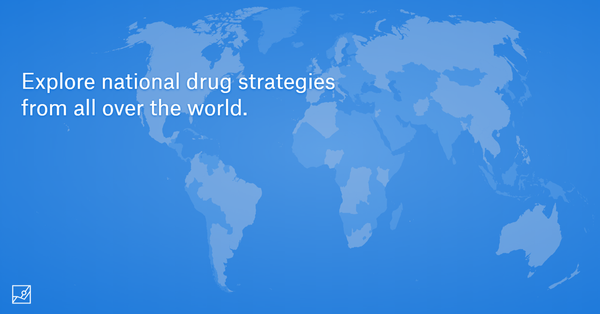CDPE
Drug policy metrics map
The CDPE has conducted an international cross comparison of illegal drug policies to create an online tool – the Drug Policy Metrics Map – to demonstrate the alignment and gaps between the metrics that countries use to assess the success of their drug policy and the actual drug policy-related outcomes they experience.
Globally, supply side strategies to reduce the scale of the illegal drug market have been prioritized by policymakers seeking to reduce drug-related harms. This has led to the development of a narrow set of indicators that are largely process-oriented – that is, they do not capture the real world impact of drug policies – to determine the effectiveness of drug policies. These include: the number of hectares of illegal drug crops eradicated by counternarcotics operations, the number and quantity of illegal drug seizures per year, and the number of people who use or traffic drugs that are arrested or in custody. However, a large body of evidence demonstrates the relative ineffectiveness of these approaches in managing the problems associated with drugs. In fact, research has shown that such policies have contributed extensively to producing a range of harms to the health and safety of individuals and communities affected by these policies.
Recently, a number of countries have sought to implement drug policies that focus on the health and safety of communities. To support this reorientation, a broader set of outcome indicators – those that measure the impact of drug policies on individuals and communities in the real world – are also required. To support this reorientation, the CDPE has proposed the adoption of the following domains for evaluations of drug policy: Health, Peace and Security, Development, and Human Rights. These domains enable a more comprehensive assessment of the impact of drug policies on a range of outcomes relevant to communities. They are also in alignment with many of the United Nations 2030 Sustainable Development Goals.
There remains a range of approaches countries use to evaluate domestic drug policies. The Drug Policy Metrics Map allows users to comparatively assess how countries determine policy success or failure in this regard, while also providing access to United Nations datasets on country-level drug policy-related outcomes. We intend for this tool to help users identify evaluative approaches that support effective drug policies.
Please explore the Drug Policy Metrics Map at http://drugmap.cdpe.org.
